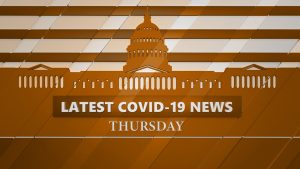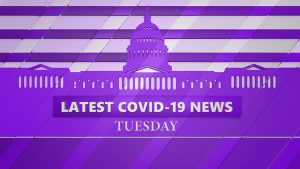By Robert S. McCaw, CAIR Director of Government Affairs Department
A third of all Americans either have or expect to lose their jobs or be furloughed due to the Coronavirus epidemic. If you are one of those people whose employment has been negatively impacted by the Coronavirus, the Council on American-Islamic Relations (CAIR) has prepared the following recommended tips you should consider following to lessen the financial impact and better secure yourself until this epidemic comes to pass.
If you are laid off:
- If you are aware that a layoff is going to occur, attempt to negotiate a severance agreement.
- Upon being laid off, make sure to collect your final paycheck. If applicable, make sure to collect compensation for any unused paid days of leave.
- Immediately file your application online with your state unemployment office to begin collecting unemployment insurance. Your employer paid state and federal unemployment insurance taxes while you were employed so do not wait to apply. For more information about filing for unemployment insurance, go to: https://www.dol.gov/general/topic/unemployment-insurance
- Due to the Coronavirus, the federal government has expanded unemployment benefits that boost the maximum benefit by $600 per week and provide laid-off workers their full pay for four months. Eligibility is extended to independent contractors and the self-employed.
If you were furloughed:
- Furloughed employees cannot and should not do any work on behalf of their employer. That includes taking phone calls or answering emails.
- If an employer requests a salaried employee to conduct work while furloughed, that employee is entitled to the equivalent of their salary for one day’s worth of work.
- If an employer requested an hourly employee to conduct work while furloughed, that employee is entitled payment for the time they worked.
- Furloughed employees should also immediately submit an application online with your state unemployment office to begin collecting unemployment insurance. For more information about filing for unemployment insurance, go to: https://www.dol.gov/general/topic/unemployment-insurance
Direct federal payments:
- No need to apply. In response to the Coronavirus, the federal government is making direct payments to those who qualify of $1,200 to most individuals making up to $75,000, or $2,400 for couples making up to $150,000. Each dependent child age 16 years or under increases the amount by an additional $500. The amount decreases for individuals with incomes above $75,000, and payments cut off for those above $99,000.
- Click here to see if you are eligible.
Temporarily suspend loan, utility, and other payments (if possible):
- Because of the Coronavirus, a number of financial institutions are authorizing deferment of monthly payments for mortgages, auto loans, student loans, and other loan payments. Likewise, many utility companies have been ordered by local or state governments to temporarily suspend shutoffs.
- The Department of Housing and Urban Development has announced that it is suspending all evictions and foreclosures until the end of April. The Federal Housing Finance Agency has also directed Fannie Mae and Freddie Mac to also suspend all evictions and foreclosures for a minimum of 60 days starting from March 18. [NOTE: Evictions and foreclosure moratorium only applies for properties that have an FHA loan, unless states have imposed their own moratorium and they do not reduce the amount of rent due, nonpayment of which could still have legal consequences (including wage garnishment or payment of attorneys’ fees in a breach of contract action).]
- When contacting your loan servicing or utility company make sure to specifically mention how the Coronavirus has impacted you – anecdotal reports indicate that not directly mentioning the virus may not trigger these specific Coronavirus related deferment policies.
- Do not wait until it is too late to contact your landlord if you cannot pay your rent. Note that multiple cities and states have announced a suspension in evictions during the coronavirus outbreak.
Health insurance:
- Eleven states and the District of Columbia have reopened enrollment for the Affordable Care Act, commonly referred to as Obama Care. That includes the states of California, Colorado, Connecticut, Maryland, Massachusetts, Minnesota, Nevada, New York, Rhode Island, Vermont and Washington, in addition to Washington, D.C.
- It is unclear whether the Trump administration will establish a special enrollment period for remaining states. If you live in a state that does have an open enrollment, private options remain available but range in quality and price.
- In the interim, check with your previous employer about any available options.
Federal, state and local assistance:
- The Supplemental Nutrition Assistance Program (SNAP) provides nutrition benefits to supplement the food budget of needy families so they can purchase healthy food and move towards self-sufficiency. To get SNAP benefits, you must apply in the state in which you currently live and you must meet certain requirements, including certain resource and income limits. Find out if you qualify for SNAP and how to apply through your state by going to: www.usa.gov/food-help
- Medicaid is a federal and state program that helps with medical costs for some people with limited income and resources. Medicaid also offers benefits not normally covered by Medicare, including nursing home care and personal care services. Find out if you qualify for coverage and apply by going to: www.Medicaid.gov
- The Temporary Assistance for Needy Families (TANF) program provides temporary financial assistance for pregnant women and families with one or more dependent children. For links to state specific information on what assistance your state provides through TANF, go to: https://www.acf.hhs.gov/ofa/help
- The Special Supplemental Nutrition Program for Women, Infants, and Children (WIC) provides federal grants to states for supplemental foods, health care referrals, and nutrition education for low-income pregnant, breastfeeding, and non-breastfeeding postpartum women, and to infants and children up to age five who are found to be at nutritional risk. Find out if you qualify for WIC and how to apply by going to: https://www.fns.usda.gov/wic
- While closed throughout the country, many public schools are providing alternative nutritional assistance to families in need. Check with your local or county department of education to see if such a program is available to supplement your children’s nutritional requirements.
- Food banks continue to spring into action in response to the Coronavirus. To find the food bank closest to you search on Google.com the phrase “food banks near me.”




